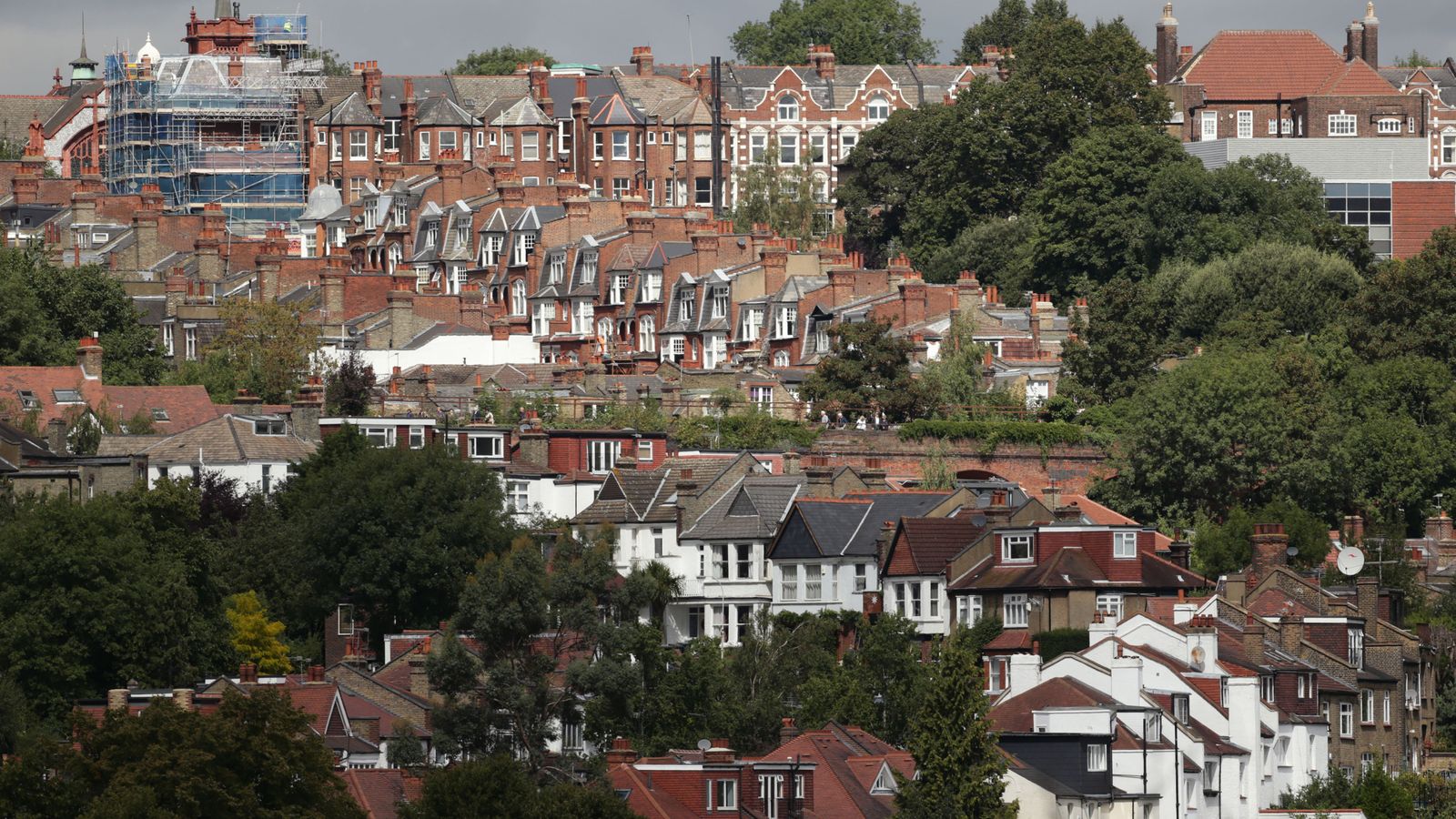Labour has unveiled a five-point plan to tackle the mortgage crisis – but Rishi Sunak is insisting that “beating inflation has to be the priority”.
The Opposition and the prime minister were speaking ahead of the Bank of England preparing to hike interests rate yet again after inflation in the UK defied expectations and failed to fall.
It has led to warnings of a “ticking time bomb” for homeowners whose mortgage payments are likely to soar by hundreds of pounds per month, sparking fears of a rise in home repossessions.
Labour is calling on the government to immediately adopt five measures, which include requiring banks to allow borrowers to switch to interest-only mortgage payments and lengthen the term of their mortgage period.
Labour’s plan also includes:
• Requiring lenders to reverse any support measures when the borrower requests
• Requiring lenders to wait a minimum of six months before initiating repossession proceedings
• Instructing the FCA (Financial Conduct Authority) to urgently issue consumer guidance to prevent the changes from impacting credit scores
Inflation latest updates: One figure within data is ‘deeply worrying’
MPs reject Labour attempt to revive scrapped animal welfare bill
Labour plans to expand Lords with new peers if it wins election – despite wanting to abolish it
Labour to force Conservative MPs to vote on return of animal rights bill
Labour said the mortgage crisis is worse in the UK than neighbouring advanced economies such as France and Ireland, with the gap in rates costing a typical household in Britain £1,000 more in repayments.
Shadow chancellor Rachel Reeves said millions of people “face a mortgage catastrophe made in Downing Street”.
She added: “Our five-point plan to ease the Tory mortgage penalty offers practical help now, while our commitment to fiscal responsibility and growth will secure our economy for the future.
“Instead of squabbling over peerages and parties and ruling out any action on mortgages, the Tories should be taking responsibility and acting now.”
But the prime minister appears to be sticking to his guns with his insistence that any intervention could make inflation worse in the long run.
In a speech being delivered by Mr Sunak on Thursday, he will acknowledge the “concerning” time for families and businesses.
But he will stress that failing to get a grip on inflation now will mean the damage to the economy will be worse and longer lasting.
He will say: “I feel a deep moral responsibility to make sure the money you earn holds its value.
“That’s why our number one priority is to halve inflation this year and get back to the target of 2%.
“And I’m completely confident that if we hold our nerve, we can do so.”
Please use Chrome browser for a more accessible video player
Pressure grows on Sunak
Downing Street is coming under increasing pressure to intervene as the UK’s mortgage crunch deepens.
The Bank of England is expected to raise interest rates on Thursday for the thirteenth time in a row – having already hiked it from 0.1% in December 2021 to 4.5%, where it currently stands.
It comes after disappointing inflation figures showed price rises have not eased, with the rate remaining at 8.7%.
This puts the government’s pledge to halve inflation by the end of the year in jeopardy.
And high interest rates mean more expensive borrowing, sending mortgages higher.
The Institute for Fiscal Studies warned the move could see an estimated 1.4 million mortgage holders – half of them aged under 40 – lose more than 20% of their disposable income.
The independent think tank said the average mortgage-holding household faces paying nearly £280 more each month compared with this time last year – with 30 to 39-year-olds paying nearly £360 more.
It followed warnings from economists at the Resolution Foundation that annual mortgage repayments are set to rise by £2,900 for the average household remortgaging next year.
Meanwhile the typical rate for a two-year fixed deal rose to 6% on Monday – a high not seen since 2008 with the exception of after Liz Truss’s botched mini-budget.
Ms Reeves will set out more detail of Labour’s plan when she visits Boris Johnson’s vacated Uxbridge and South Ruislip seat on Thursday.
Read More:
No decrease in inflation as it remains at 8.7%
Jeremy Hunt rules out mortgage support and capping food prices
Please use Chrome browser for a more accessible video player
‘Tidal wave of repossessions’
Seperately, Liberal Democrat leader Sir Ed Davey urged ministers to act now to prevent a “tidal wave” of home repossessions – with an emergency mortgage protection fund paid for by a reversal of tax cuts for big banks.
Analysis by the party reveals 1,250 homeowners have had to hand back the keys to their homes after falling behind on their mortgage repayments since last year’s ill-fated mini-budget, which plunged the market into turmoil.
Lasting for a year, the protection fund would provide targeted support in the form of grants of up to £300 a month to homeowners on the lowest incomes and those suffering from the sharpest rises in rates.
There are also calls from some Conservatives to offer major financial support to defuse a “mortgage bomb” hitting core voters.
And the Green Party stressed the need for controls on rents to prevent landlords passing on hikes on buy-to-let mortgages to tenants.
Chancellor Jeremy Hunt will meet lenders on Friday to ask what help they can give to struggling borrowers and see what flexibilities they can offer to those in arrears.
But Downing Street made clear the chancellor will not be forcing lenders to take action.
The prime minister’s official spokesman said: “We’re not seeking to intervene in commercial decisions for banks offering mortgages.
“We want banks to be offering the best possible products to consumers, that’s in everyone’s interest. And so we will be looking to dig into what more they can be doing in this space.”







